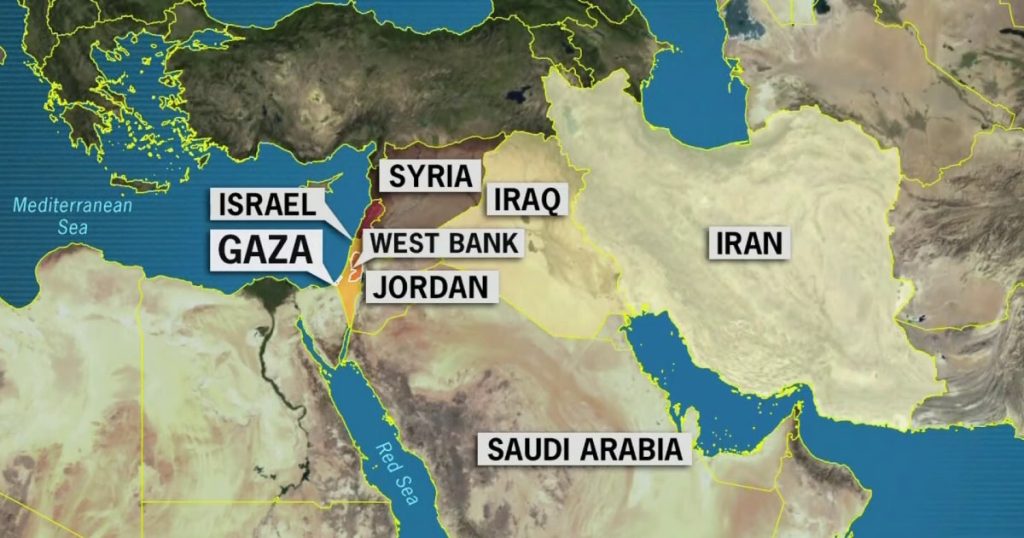Amid escalating tensions in the Middle East, the conflict between Israel and Iran has reached a dangerous new level. Iranian officials have launched dozens of weaponized drones targeting locations inside Israel in retaliation for what they claim was an Israeli bombing of their embassy in Syria. This move has heightened fears of a broader war in the region as both countries exchange threats and escalate their military actions against each other. The situation has become increasingly volatile as Iran vows to “punish” Israel for its actions, leading to concerns about the potential for a larger conflict.
The ongoing conflict has also had a devastating impact on the people living in Gaza. A journalist recently lost a leg in an Israeli missile strike, highlighting the human cost of the violence in the region. In addition, Gazans are struggling to cope with the destruction and loss caused by the conflict, with families lamenting the lack of Eid joy for their children and the pervasive smell of death in the air. The physical and emotional toll of the conflict is evident, as families mourn their loved ones and struggle to rebuild their lives amidst the rubble left in the wake of the fighting.
Ceasefire talks between Israel and Hamas have remained stalled, with both sides seeming far apart in their negotiations. As tensions continue to simmer, fears of a ground offensive in Rafah loom large, further raising the stakes in the conflict. Despite calls for de-escalation and a peaceful resolution, the situation on the ground remains precarious, with the potential for further violence and bloodshed ever present. The international community is closely watching the developments in the region, hoping for a swift resolution to the conflict and an end to the suffering of innocent civilians caught in the crossfire.
Amid the escalating tensions, U.S. officials have voiced concerns about the possibility of Iran planning an attack on Israel. President Biden has warned that Iran’s actions could have severe consequences for the region, urging both sides to exercise restraint and avoid further escalation. The U.S. has also refuted claims of genocide by Israel in Gaza, emphasizing the need for a peaceful resolution to the conflict through dialogue and negotiations. With multiple parties involved and competing interests at play, finding a path to peace will require diplomatic finesse and a willingness to compromise on all sides.
The situation in Gaza remains dire, with families of hostages speaking out after a meeting with White House officials. The lack of progress in ceasefire talks has left them anxious and desperate for results, as they grapple with the uncertainty of their loved ones’ fate. As Gazans return to scenes of destruction and despair, the need for humanitarian aid and support is more urgent than ever. The international community must come together to provide assistance to those in need and work towards a lasting peace in the region, before the situation spirals even further out of control.
As the conflict between Israel and Iran rages on, the prospect of a broader war in the Middle East looms large. Both countries have exchanged threats and military actions, escalating tensions and raising fears of a wider conflict. The use of weaponized drones by Iran to target Israel is a dangerous escalation that could further destabilize the region and lead to more violence and suffering for civilians caught in the crossfire. The international community must act swiftly to de-escalate the situation and prevent further bloodshed, before the conflict spirals out of control and causes even more devastation in the already war-torn region.


